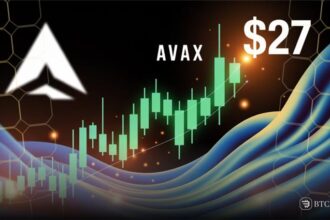Dubai’s crypto regulator has set a deadline of June. 19 for licensed digital asset companies to comply with its updated rules aimed to strengthen market integrity and risk management. On May. 19, Dubai’s Virtual Assets Regulatory Authority (VARA) announced the release of Version 2.0 of their Rulebooks.
The regulator said it has tightened controls on margin trading and token distribution services. They have also aligned compliance rules across all licensed activities, and clarified the rules around collateral wallet arrangements.
VARA’s team will connect with licensed companies and expects them to follow the updated rules after a 30-day transition period. The authority wrote:
In line with global regulatory best practices, a 30-day transition period has been granted to all impacted virtual asset service providers [VASPs], with full compliance required by 19 June 2025.
VARA enhances oversight of regulated virtual asset activities
VARA has improved its supervision across several regulated activities. This includes advisory services, lending and borrowing, custody, exchanges, broker-dealers, virtual asset management and investment, and virtual asset transfer and settlement services.
A VARA spokesperson said the updates will create consistency across all activity-based rules by clearly defining key operational terms. The spokesperson shared examples of clearer terms in the update, like “client assets,” “qualified custodians,” and “collateral requirements.”
The update also brought risk management and disclosure responsibilities where they overlap, especially in areas like brokerage, custody, and exchange.
For margin trading, the VARA spokesperson said they tightened leverage limits, clarified collateral requirements, and increased monitoring of the platforms offering this service.
Regulators restricts margin trading and token hype
Margin trading allows traders to control large positions with smaller amounts of capital. It amplifies both gains and losses. Tightening the leverage traders use helps limit the risks of widespread liquidations in a market downturn.
Margin trading lets traders control large positions with less money. It increases both potential profits and losses. Using lower leverage can reduce the risk of many traders being forced to sell during a market downturn.
The crypto regulator introduced new rules on token distribution that cover licensing requirements, investor protections, and marketing limits. The spokesperson emphasized the marketing limits, especially for offers directed at retail customers.







